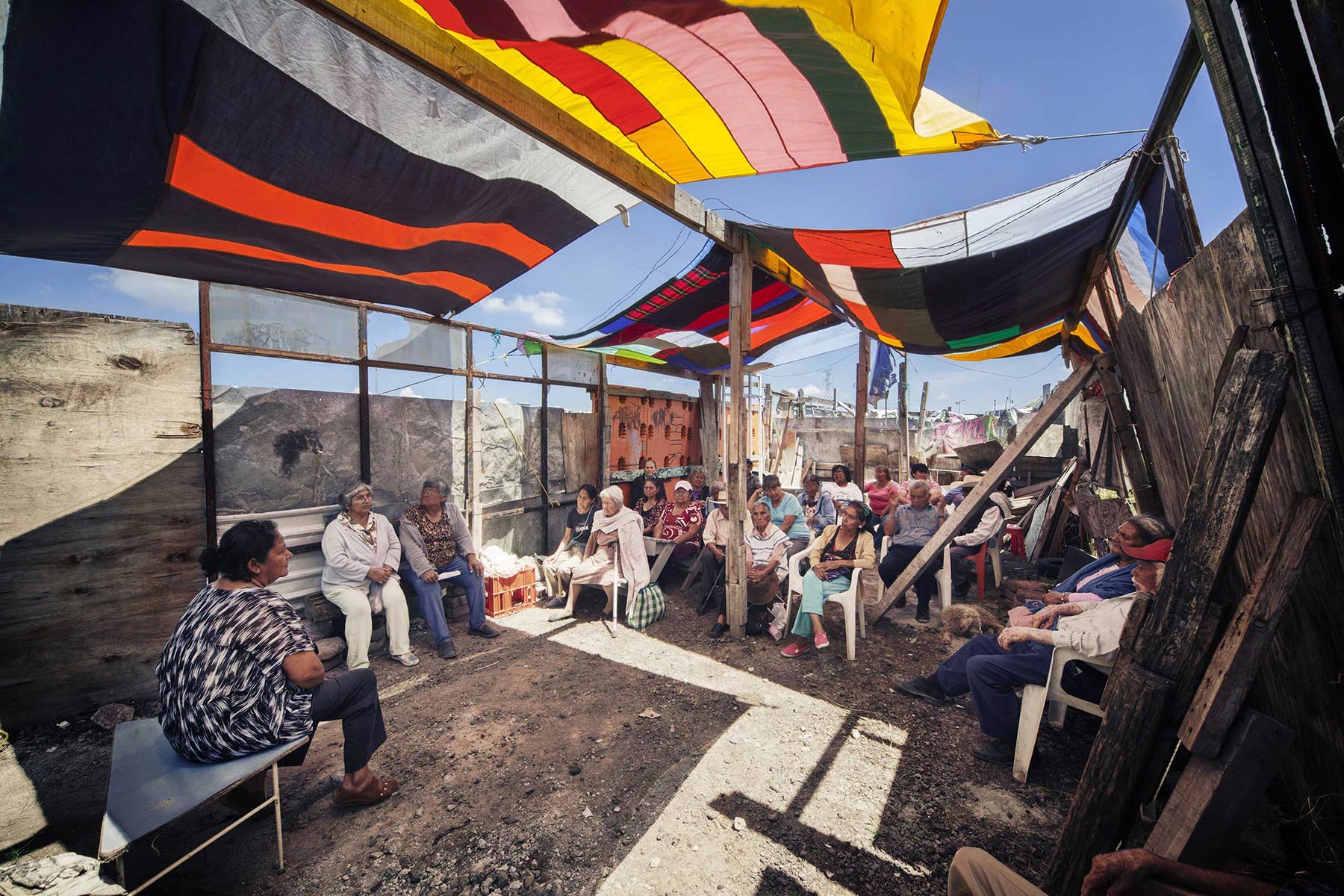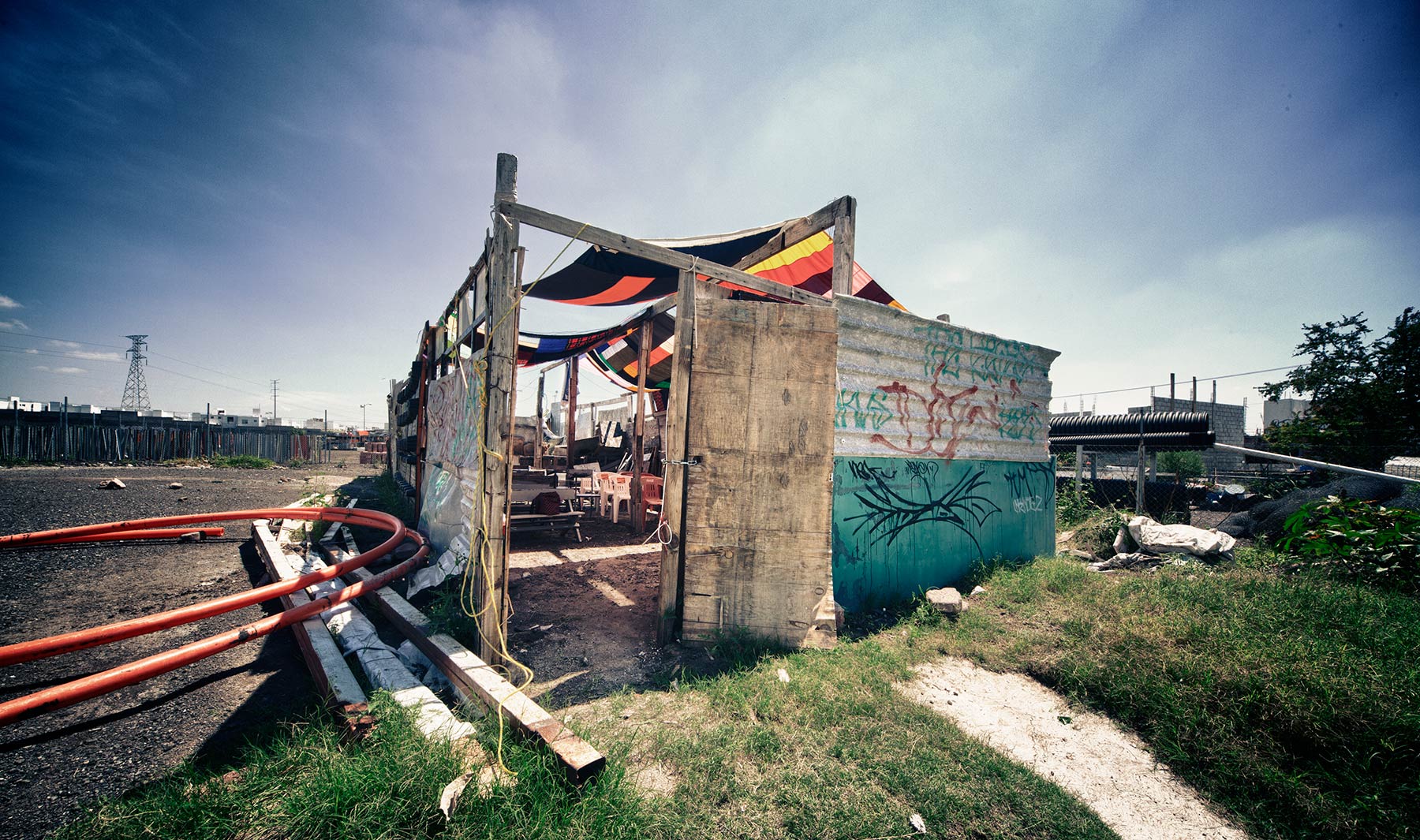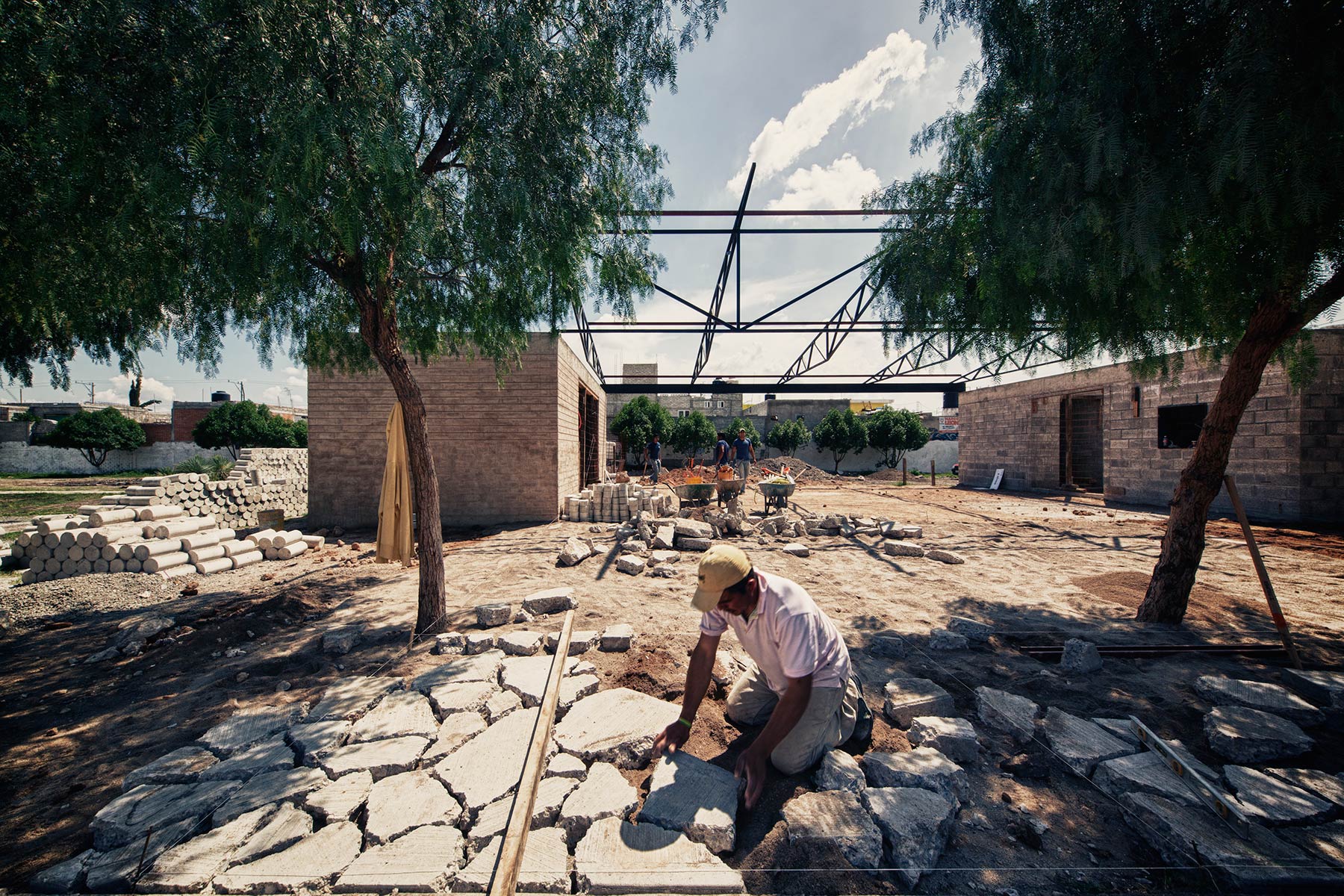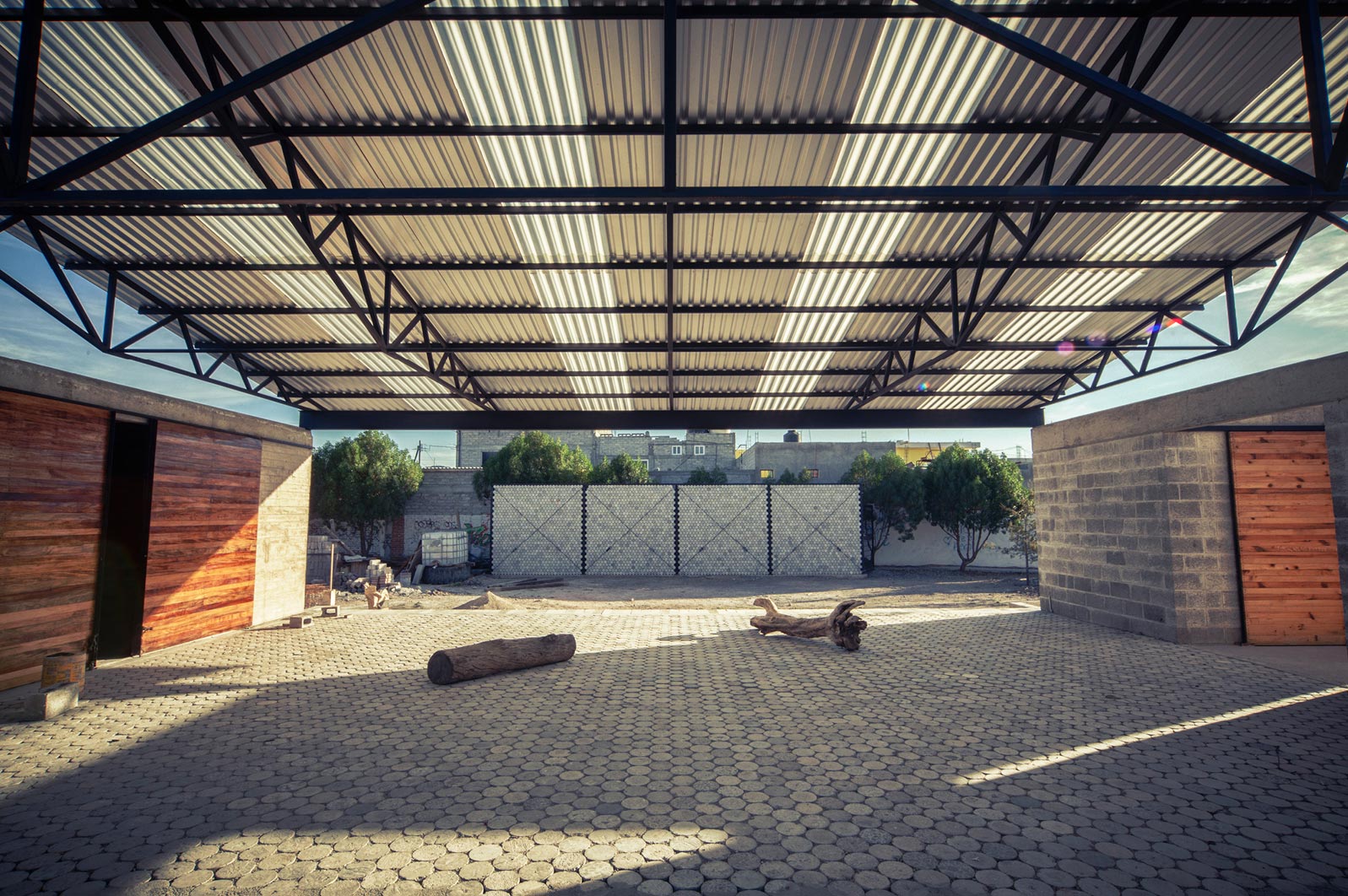CEMEX Building Award Mexico Series: Transcendent Social Impact - CEMEX Building Award Mexico Series: Transcendent Social Impact
Press Releases
CEMEX Building Award Mexico Series: Transcendent Social Impact
September 10, 2015
The CEMEX Building Award is an initiative created and organized by CEMEX for the purpose of distinguishing the best in architecture and construction around the world. Each year, CEMEX has distinguished the best construction projects and all those people who have made these possible: architects, engineers, investors, and constructors. In this series, we recognize the winners of the 2014 Mexico edition.
The Sombrerete Park Community Center, located in the capital of the state of Querétaro, Mexico, is the type of project whose collective and individual social impact far transcends its architectural simplicity.
This is the rationale of Juan Alfonso Garduño, the architect responsible for the project awarded first place in the Public Services and Community Well-being Category of the 23rd Mexico edition of the CEMEX Building Award Competition.
The idea for the project came about after detecting the existence of a marginalized but highly participative community of senior adults and young mothers who met once a week. “We worked hand-in-hand with them to discover their needs when we developed this architectural project. We firmly believe this participative work serves as a model and inspiration to other communities who have yet to discover the advantages of working as a team towards a common project,” said Garduño.
Conceived and developed at the Active Workshop of the City, an academic design and construction group at the Querétaro Campus of Monterrey Tech University, the completed Community Center comprises a great esplanade, a classroom, and a service area equipped with restrooms, storage facilities, and kitchenette. Now both young and old members enjoy a place for recreation and learning—particularly the grandparents, who take courses with the local Family Development Department and other institutions, which also provide them with free meals.
The “access way” to the Center consists of trees because the location is not fenced, in order to create a venue of freedom and inclusion. Accordingly, areas such as the esplanade are open for use 24 hours a day.
The initiative came to fruition through in-kind donations including materials and voluntary labor. Among those working on the project were a group of students from Cambridge University who, over the course of two summers, helped out in the construction. Moreover, the background of the Center features a wall made of concrete test cylinders—donated by CEMEX—where users have a place to gather and store materials, including PET, glass, and cardboard, that are recycled to finance the center.
With a limited budget, the team worked with whatever resources they had at hand—from useless curbing to straw and earth—to create slabs. “Many of these materials are useful because we can use cement as a binder in different ways,” explained the architect.
On top of optimizing resources, the team faced the challenge of involving the community so that it would play an active role in the development of the project. To this end, “the cylinders donated by CEMEX offered an incredible example because we had to form a human chain to move the cylinders, enabling people to clearly recognize their contribution to their project,” added the architect.
“The pleasure and pride of winning the Award helps simple projects like this gain the necessary validation and appreciation of many people. Beyond architectural merit, the importance of a project is measured by the way architecture can contribute to the development of communities,” concluded Garduño.
CEMEX is a global building materials company that provides high quality products and reliable service to customers and communities in more than 50 countries. CEMEX has a rich history of improving the wellbeing of those it serves through innovative building solutions, efficiency advancements, and efforts to promote a sustainable future.




